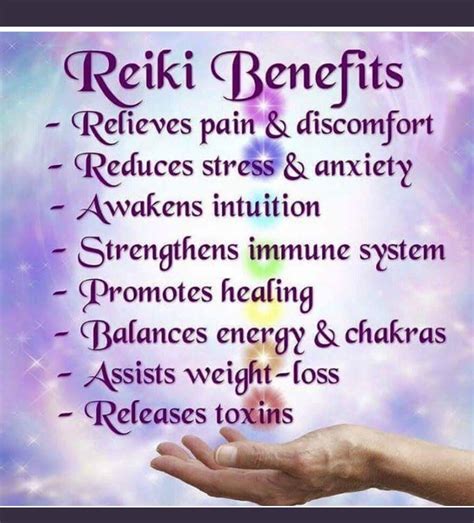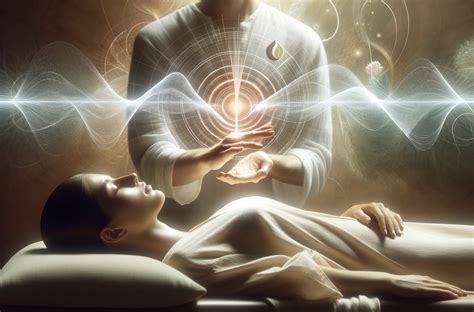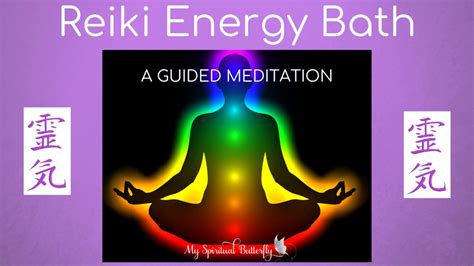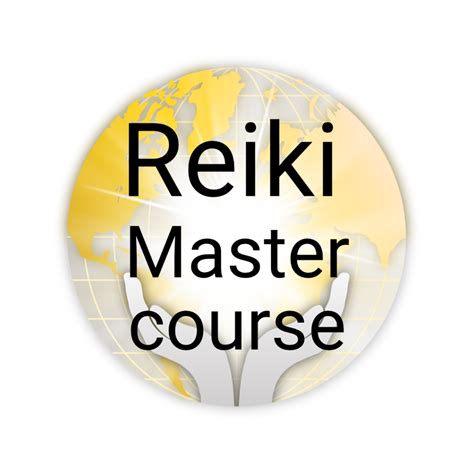Intro
Discover Reike healing, a holistic energy therapy using universal life force to balance mind, body, and spirit, promoting relaxation, stress relief, and overall well-being through gentle, non-invasive techniques.
Reiki healing is a form of energy healing that originated in Japan in the early 20th century. The practice is based on the idea that there is a universal life force energy that flows through all living things, and that this energy can be harnessed and channeled to promote healing and balance in the body, mind, and spirit. Reiki healing is a holistic approach that aims to restore balance and harmony to the individual, and is often used to complement traditional medical treatments.
The concept of Reiki healing is rooted in the idea that the body has a natural ability to heal itself, and that this ability can be enhanced by the transfer of energy from the practitioner's hands to the client's body. Reiki practitioners believe that the energy they channel is not their own, but rather a universal energy that is available to everyone. This energy is said to be intelligent and knows exactly where to go and what to do to promote healing and balance.
One of the key principles of Reiki healing is the idea of intention. The practitioner sets an intention to channel the energy and allow it to flow through their hands, and then places their hands on or above specific positions on the client's body. The energy is said to flow through the practitioner's hands and into the client's body, where it can help to release blockages, balance the energy, and promote healing.
History of Reiki Healing

Reiki healing has a rich history that dates back to the early 20th century. The practice was developed by Mikao Usui, a Japanese Buddhist monk who was seeking a way to heal himself and others. Usui spent many years studying the ancient teachings of Buddhism and Taoism, and eventually developed a system of energy healing that he called Reiki. The word Reiki is derived from the Japanese words "Rei," meaning universal, and "Ki," meaning life force energy.
Usui's system of Reiki healing was based on the idea of channeling the universal life force energy to promote healing and balance. He believed that this energy was available to everyone, and that it could be harnessed and channeled through the hands to promote healing. Usui spent many years teaching Reiki to others, and eventually developed a system of hand positions and techniques that are still used today.
Key Principles of Reiki Healing
Reiki healing is based on several key principles, including the idea of intention, the concept of universal life force energy, and the importance of balance and harmony. The practice is also based on the idea that the body has a natural ability to heal itself, and that this ability can be enhanced by the transfer of energy from the practitioner's hands to the client's body.Some of the key principles of Reiki healing include:
- The idea that the universal life force energy is intelligent and knows exactly where to go and what to do to promote healing and balance
- The importance of intention and the role of the practitioner in channeling the energy
- The concept of balance and harmony, and the idea that the body has a natural ability to heal itself
- The idea that Reiki healing is a holistic approach that aims to restore balance and harmony to the individual
Benefits of Reiki Healing

Reiki healing has a number of benefits, including reduced stress and anxiety, improved mood, and enhanced overall well-being. The practice has also been shown to be effective in reducing pain, improving sleep, and boosting the immune system. Reiki healing is a holistic approach that aims to restore balance and harmony to the individual, and is often used to complement traditional medical treatments.
Some of the benefits of Reiki healing include:
- Reduced stress and anxiety
- Improved mood and overall sense of well-being
- Enhanced immune function
- Improved sleep
- Reduced pain and inflammation
- Improved mental clarity and focus
How Reiki Healing Works
Reiki healing works by channeling the universal life force energy through the practitioner's hands and into the client's body. The energy is said to flow through the practitioner's hands and into the client's body, where it can help to release blockages, balance the energy, and promote healing. The practice is based on the idea that the body has a natural ability to heal itself, and that this ability can be enhanced by the transfer of energy from the practitioner's hands to the client's body.The process of Reiki healing typically involves the practitioner placing their hands on or above specific positions on the client's body. The practitioner sets an intention to channel the energy and allow it to flow through their hands, and then allows the energy to flow into the client's body. The energy is said to be intelligent and knows exactly where to go and what to do to promote healing and balance.
Reiki Healing Techniques

Reiki healing techniques involve the use of specific hand positions and intentions to channel the universal life force energy. The practice typically involves the practitioner placing their hands on or above specific positions on the client's body, and then allowing the energy to flow into the client's body. The energy is said to be intelligent and knows exactly where to go and what to do to promote healing and balance.
Some of the most common Reiki healing techniques include:
- The use of specific hand positions to channel the energy
- The use of intention to focus the energy and promote healing
- The use of breathwork and meditation to enhance the flow of energy
- The use of sound and vibration to enhance the flow of energy
Reiki Healing and Chakras
Reiki healing is often used in conjunction with the concept of chakras, which are believed to be energy centers in the body that play a crucial role in our overall health and well-being. The chakras are believed to be connected by a network of energy pathways, and are said to be responsible for regulating the flow of energy in the body.Reiki healing can be used to balance and align the chakras, and to promote the flow of energy through the body. The practice typically involves the practitioner placing their hands on or above specific positions on the client's body, and then allowing the energy to flow into the client's body. The energy is said to be intelligent and knows exactly where to go and what to do to promote healing and balance.
Reiki Healing and Meditation

Reiki healing and meditation are often used together to promote relaxation, reduce stress, and enhance overall well-being. Meditation is a powerful tool that can help to calm the mind, balance the emotions, and promote a sense of inner peace and tranquility. When used in conjunction with Reiki healing, meditation can help to enhance the flow of energy and promote a deeper sense of relaxation and balance.
Some of the benefits of using Reiki healing and meditation together include:
- Enhanced relaxation and reduced stress
- Improved mood and overall sense of well-being
- Increased sense of calm and inner peace
- Improved focus and mental clarity
- Enhanced immune function
Reiki Healing and Spirituality
Reiki healing is often used as a spiritual practice, and is believed to be a powerful tool for promoting spiritual growth and development. The practice is based on the idea that we are all connected, and that we are all part of a larger web of life. Reiki healing can help to promote a sense of connection and oneness, and can be used to enhance our spiritual practice and promote a deeper sense of inner peace and tranquility.Some of the ways that Reiki healing can be used to promote spiritual growth and development include:
- Using Reiki to connect with a higher power or universal energy
- Using Reiki to promote a sense of inner peace and tranquility
- Using Reiki to enhance our intuition and psychic abilities
- Using Reiki to promote a sense of connection and oneness with others
Reiki Healing and Science

Reiki healing is often viewed with skepticism by the scientific community, and is not widely accepted as a valid form of therapy. However, there is a growing body of research that suggests that Reiki healing can be effective in reducing stress, improving mood, and enhancing overall well-being.
Some of the scientific studies that have been conducted on Reiki healing include:
- Studies on the effects of Reiki on stress and anxiety
- Studies on the effects of Reiki on pain and inflammation
- Studies on the effects of Reiki on immune function
- Studies on the effects of Reiki on mental clarity and focus
Reiki Healing and Research
There is a growing body of research on Reiki healing, and many studies have been conducted to investigate its effects. Some of the most common areas of research include: * The effects of Reiki on stress and anxiety * The effects of Reiki on pain and inflammation * The effects of Reiki on immune function * The effects of Reiki on mental clarity and focusSome of the most notable studies on Reiki healing include:
- A study published in the Journal of Alternative and Complementary Medicine that found that Reiki reduced stress and anxiety in patients undergoing chemotherapy
- A study published in the Journal of Pain and Symptom Management that found that Reiki reduced pain and improved mood in patients with chronic pain
- A study published in the Journal of Clinical Nursing that found that Reiki improved immune function and reduced stress in patients with HIV/AIDS
What is Reiki healing?
+Reiki healing is a form of energy healing that originated in Japan in the early 20th century. The practice is based on the idea that there is a universal life force energy that flows through all living things, and that this energy can be harnessed and channeled to promote healing and balance in the body, mind, and spirit.
How does Reiki healing work?
+Reiki healing works by channeling the universal life force energy through the practitioner's hands and into the client's body. The energy is said to flow through the practitioner's hands and into the client's body, where it can help to release blockages, balance the energy, and promote healing.
What are the benefits of Reiki healing?
+Reiki healing has a number of benefits, including reduced stress and anxiety, improved mood, and enhanced overall well-being. The practice has also been shown to be effective in reducing pain, improving sleep, and boosting the immune system.
We hope this article has provided you with a comprehensive understanding of Reiki healing and its benefits. Whether you are looking to reduce stress and anxiety, improve your mood, or enhance your overall well-being, Reiki healing may be a valuable tool to consider. We invite you to share your thoughts and experiences with Reiki healing in the comments below, and to explore the many resources available to learn more about this powerful practice.
